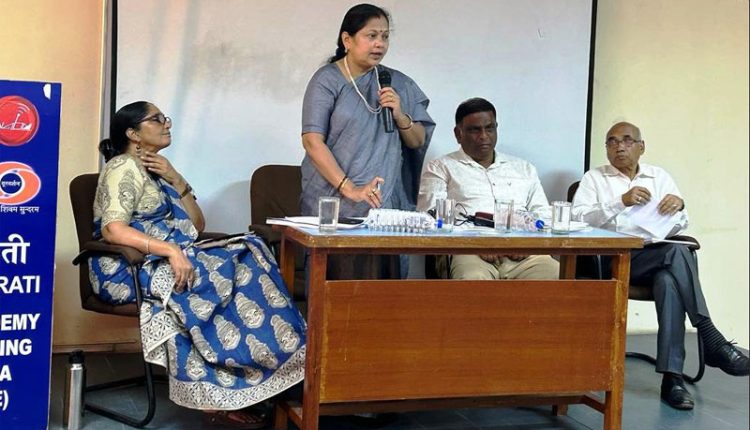Groundbreaking Study Report on “Challenges of Women Police Personnel”
Bhubaneswar (Kalinga Voice) : “Fixed hours of work would help policewomen to take care of work and home. One day of weekly off should be mandatory for every police personnel(including officers and non-officer rank). There should be clean and hygienic toilets to maintain. It is indispensable to maintain menstrual hygiene and take rest during this time every month. In the case of policewomen, the long hours at work compounded by the kind of uniform they wear and the non-availability of clean toilets at the workplace makes them very susceptible to the reproductive tract and vaginal infections. Basic facilities like clean toilets and clean and safe drinking water are the basic minimum that every police station and police office must have irrespective of its location or size” says a report “ Challenges of Women Police Personnel” released today in Bhubaneswar .
This is a comprehensive report of the study on “ Challenges of Women Police Personnel” conducted by Centre for the Sustainable Use of Natural and Social Resources(CSNR), Bhubaneswar in 2022. The study is the first of its kind and provides a detailed analysis of multi dimensionality of the challenges confronted by policewomen of four states- Odisha, Chhatisgarh, Jharkhand and Bihar.
In this context, the Launching programme has been organized at NABM, Bhubaneswar in the presence of Dr. Minati Behera, Chairperson, State Commission for Women,Shri Manmohan Praharaj IPS (Retd) (Former DGP, Odisha) and Shri Gouri Sankar Rath IPS (Retd), (Former DGP, Jharkhand),Other than them,Ms. Kasturi Mohapatra, Editor UtakalPrasanga & Odisha Review,and Ms Sujata Jena, Advocate, High Court were present as honourable guests. , Ms. Bishakha Bhanja, NAWO Odisha Chapter had managed the programme..
The study report is the result of extensive research, conducted by Dr.Sushmita Parija, Faculty of Manipal University and Expert, Human Resource Development

The report presents a comprehensive overview of the findings which is as follows:
Consolidated data shows, the highest number of respondents have contributed 1 to 10 years of service in the police department of their respective states( 209 out of 328 i.e 63.72%), 88 respondents (26.83%) have worked in the police department for 11 to 20 years. Followed by 23 respondents(7.01%) who have delivered service in the police department for 21 to 30 years and 8(2.44%) who have delivered service for more than 30 years in the police department.
It is observed that 14.02% from Odisha do not have access to clean toilets, whereas only 8.5%have access to clean washrooms. Similarly, 21.6% expressed that they do not have rest room.17.37% expressed their difficulty in not having transportation facilities during odd hours of work.
Across the states, women respondents face similar challenges and their perception of the gravity of the difficulties they face due to various challenges is more or less same. It is found that no time for family as well as self is the most piercing concern for most respondents across the four states. Followed by no weekend off’, which is not an easy thing to live with for the respondents because they do not get any room to unwind
Not being able to take care of their children not only is a big challenge but a worrisome factor in the lives of the respondents as no mother can ever be free of stress if she does not get time to look after her child’s health, education and emotional need too.
Cumulatively, one day weekly leave, availability of basic facilities like clean and separate toilet, rest room, transportation etc and crèche are the top three ranked facilities that women police who participated in the study want. These are needed to make their lives better and create conducive circumstances for them to work in the police service.
State governments are focusing on contractual employment even in police service. Contractual employment is not a favourable mode of employment to be adopted in the police department. Police personnel, irrespective of their mode of employment, carry out similar duties in similar working conditions.
It has been also recommended in the report that “ Provision of Child care leave to a female member of the service in the All India Service (Leave) rules 1955 is a leave that makes taking care of children easier for working women. This leave would particularly help the police women in tending to the need of their children .Hence, the state governments must adopt this provision and implement it in letter and spirit in the police departments”
The attendees expressed their appreciation for the study report and its relevance. They urged to use the report as a road map for action and to work together towards a sustainable growth.
Recommendations like fixed working hour and opening crèche and clean and hygienic washrooms for women personnel has been aroused by the guests present in the workshop.

